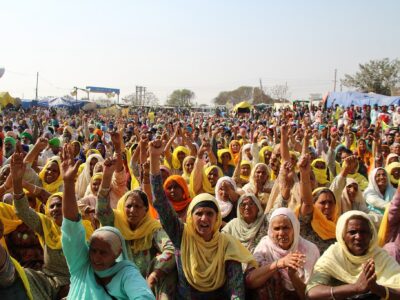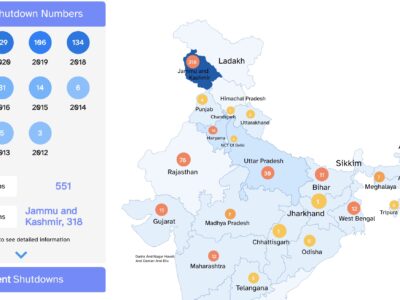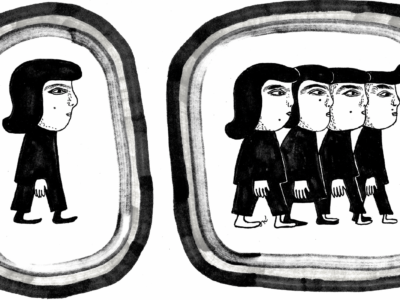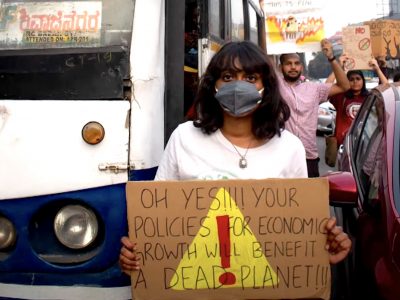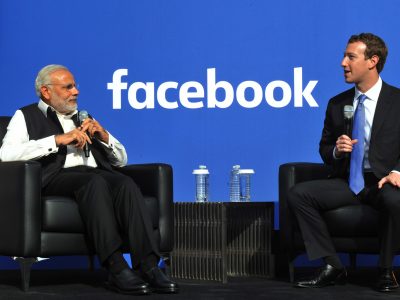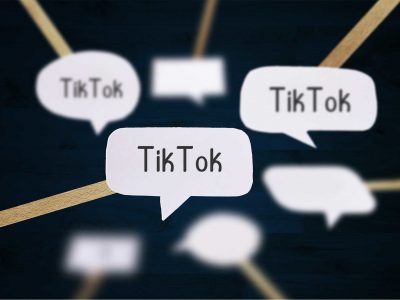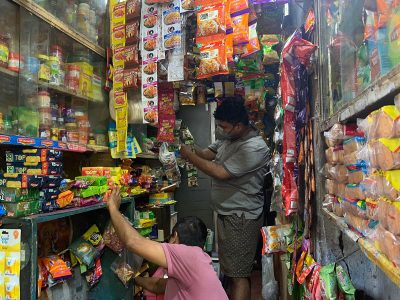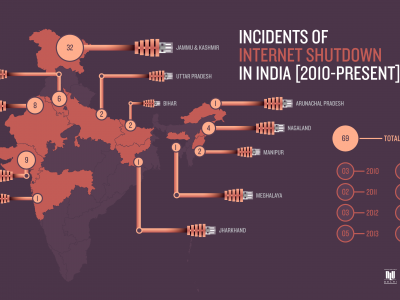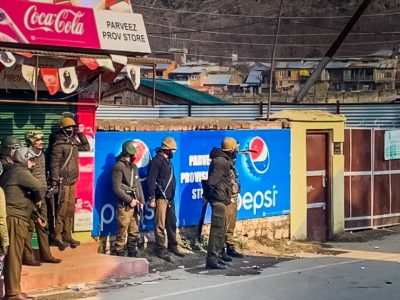Stories about India
Podcast: The state of press freedom
This week, we head to China, India, Colombia, Indonesia and Serbia to hear from journalists and researchers about what challenges the media faces in those countries.
Exploring the use of tech-based tools in India to curb dissent during protests
India is seeing the increased use of technology to monitor dissent and surveil dissenters, particularly protesters, which has a chilling effect on the freedom of expression.
2021 in retrospective: Authoritarian practices threatened journalists and restricted media freedom in South Asia
In this retrospective, we will review issues of online and press freedom, censorship, the safety of journalists and digital rights in South Asia that we covered during the year.
Press Freedom and the Indian Judiciary
In India, journalists are being unfairly charged with defamation, sedition, and publishing fake news. Despite the constitutional guarantee of press freedom, threats to the press are rampant in the country.
Pegasus spyware revelation indicates Indian state snooping on journalists, activists and politicians
The Pegasus Project released a report detailing the potential hacking and surveillance of more than 1,000 activists, journalists and politicians from India using the Israeli-made spyware, Pegasus.
Social media companies could be liable for user-generated content in India
Twitter in India has found itself outside the “safe harbour” that otherwise would have protected itself legally from being implicated for the content generated by its users.
Twitter vs India: The battle of BJP and Congress over a ‘fake toolkit’ on COVID-19
Twitter expressed concern about the “use of intimidation tactics by the police” and “the potential threat to freedom of expression” for the Indian users.
How India's new internet regulations will change social media, online news and video streaming
If failing to comply, social media platforms could lose intermediary immunity, which means they could be prosecuted for content posted by its users.
Arrest of Indian climate activist Disha Ravi over protest ‘toolkit’ draws backlash
'Editing a Google Doc in support of farmers is an act of sedition in this country now,' a writer said.
Indian farmers’ protests: Twitter withholds, then restores, prominent accounts by government order
Twitter restored the accounts after concluding they were "speech and newsworthy," a decision the Indian government decried: "Twitter cannot assume the role of a court and justify non-compliance."
Facebook denies accusations of fuelling hate speech and pro-BJP bias in India
On September 16, Facebook India’s chief issued a statement denying accusations that the social media giant is making profits by giving a platform to hate speech in India.
Policing the digital frontiers: Is India weaponizing technology to silence civil society?
In the word's largest democracy, the targeting of human rights defenders through spyware poses a threat to fundamental rights and freedoms, including freedom of expression and privacy.
India bans TikTok, 58 other apps amid rising anti-China sentiment, border clashes
The border clashes and the stand-off between India and China reached naught after India decided to ban video-creation platform TikTok and 58 other apps due to “security issues”.
India's digital ID system deepens exclusion of vulnerable communities amid pandemic
The use of Aadhaar-based authentication makes exclusions more likely.
Coronavirus and surveillance technology in India: Public health vs. privacy
Global Voices interviewed rights lawyer Mishi Choudhary and tech and policy researcher Srinivas Kodali to discuss the newest proposal in India to use unique ID data for #FacialRecognition with drones.
Fighting the COVID-19 ‘Infodemic’ in the Asia-Pacific
EngageMedia lists some of the media initiatives addressing the COVID-19 "Infodemic' across the Asia-Pacific region
Is India fighting COVID-19 the “mass surveillance” way?
"There isn’t enough information available on what data will be collected, how long will it be stored and what uses it will be put to."
Internet shutdowns in 2019: India continued to top list of worst offenders
In 2019, access to the internet was disrupted 121 times in India alone, says Access Now in a new report.
#MarginalizedAadhaar: Is India's Aadhaar enabling more exclusion in social welfare for marginalized communities?
India's biometric-based digital ID Aadhaar seems to bring more exclusion to marginalized communities rather than solving it.
What do we know about the ‘Great Firewall of India’?
After a six-month-long internet shutdown, access to only 301 white-listed websites has been granted in Jammu and Kashmir, whereas social media, VPNs and many other sites remain banned.


